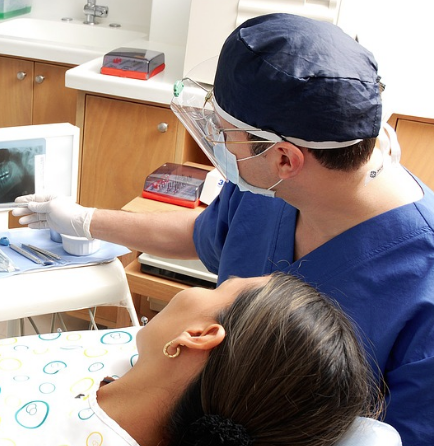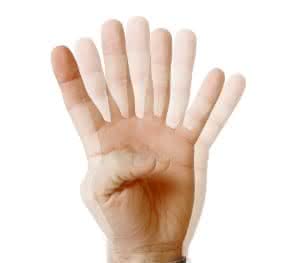Introduction:
Experiencing vertigo after dental work can be disconcerting and raise questions about its underlying causes and management. In this comprehensive guide, we’ll address common queries and concerns surrounding vertigo following dental procedures, offering insights into potential triggers and strategies for symptom relief.
FAQs on Vertigo After Dental Work:
Can a Bad Tooth Cause Vertigo?
- Yes. Dental issues such as infections or abscesses can potentially lead to vertigo. The inner ear’s proximity to the oral cavity means that inflammation or infection in the teeth or gums can affect the vestibular system, triggering vertigo symptoms
How Long Does Dizziness Last After Tooth Extraction?
- Dizziness following tooth extraction can vary from person to person. Typically, it may last for a few hours to a couple of days post-procedure. However, if dizziness persists or worsens, it’s essential to consult your dentist or healthcare provider for further evaluation.
Can Dental Work Cause Inner Ear Problems?
- Yes. Certain dental procedures, especially those involving the lower jaw or proximity to the inner ear, can potentially lead to inner ear disturbances and vertigo. This is often due to the manipulation of the jawbone or pressure exerted on nearby structures during dental interventions.
How to Avoid Vertigo at the Dentist?
- Communicate any history of vertigo or vestibular issues with your dentist before undergoing any procedures. Additionally, consider using relaxation techniques or sedation options if anxiety exacerbates vertigo symptoms during dental visits.
What Causes Dizziness After Tooth Extraction?
- Dizziness following tooth extraction can stem from various factors, including changes in blood pressure, pain medication side effects, or positional changes during the procedure. It’s crucial to follow post-operative care instructions provided by your dentist to minimize discomfort and dizziness.
Can a Wisdom Tooth Cause Vertigo?
- Yes. Impacted wisdom teeth or complications arising from their extraction can potentially lead to vertigo. Wisdom teeth removal procedures may involve manipulation near the temporomandibular joint (TMJ) or adjacent structures, potentially affecting vestibular function.
Can a Cavity Cause Dizziness?
- While cavities themselves may not directly cause dizziness, untreated dental issues such as infections or abscesses can lead to systemic inflammation and potential vestibular disturbances, contributing to dizziness or vertigo.
Dizziness After Root Canal: Is It Normal?
- It’s not uncommon to experience mild dizziness or lightheadedness following a root canal procedure due to factors such as stress, changes in blood pressure, or medication effects. However, persistent or severe dizziness warrants further evaluation by your dentist or healthcare provider.
Can Braces Cause Dizziness?
- Braces themselves typically do not cause dizziness. However, the initial adjustment period or discomfort associated with orthodontic treatment may lead to transient feelings of lightheadedness in some individuals.
Can Dental Problems Cause Dizziness?
Yes. Dental problems such as infections, abscesses, or temporomandibular joint (TMJ) disorders can potentially cause dizziness or vertigo. It’s essential to address underlying dental issues promptly to minimize associated symptoms and complications.
Can Novocaine Make You Dizzy?
While rare, some individuals may experience dizziness or lightheadedness as a side effect of local anesthetics such as Novocaine used during dental procedures. If you experience significant dizziness or other adverse reactions, inform your dentist immediately for appropriate management.
Conclusion:
Navigating vertigo after dental work requires a nuanced understanding of potential triggers and effective management strategies. By addressing common queries and concerns surrounding vertigo following dental procedures, individuals can proactively alleviate discomfort and enhance their dental care experience. Remember to communicate any pre-existing vestibular issues with your dentist and seek timely medical attention if dizziness persists or worsens post-treatment. With informed decision-making and proactive symptom management, you can navigate dental visits with confidence and ease.
Addressing Vertigo Naturally with DiVertigo:
In addition to understanding the potential causes and management strategies for vertigo after dental work, it’s essential to explore natural remedies that can complement traditional approaches. DiVertigo offers a natural, drug-free solution for alleviating vertigo symptoms and promoting vestibular health.
How DiVertigo Works:
DiVertigo harnesses the power of natural essential oils, including Lavender, Peppermint, and Frankincense, to provide fast-acting relief from vertigo and motion sickness. By inhaling the soothing aroma of these botanical extracts, individuals experiencing vertigo can experience a sense of calm and balance, helping to mitigate discomfort and regain equilibrium.
Benefits of DiVertigo:
Fast-Acting Relief: DiVertigo offers rapid relief from vertigo symptoms, providing comfort and reassurance during episodes of dizziness or imbalance.
Drug-Free Solution: Unlike traditional medications that may carry side effects or interactions, DiVertigo offers a natural, non-pharmaceutical alternative for managing vertigo safely and effectively.
Convenient Application: DiVertigo’s compact size and easy application make it ideal for on-the-go use, ensuring relief is readily accessible whenever and wherever vertigo strikes.
Experience Relief Today:
Whether you’re navigating vertigo after dental work or managing symptoms in daily life, DiVertigo offers a natural way to find relief and regain control over your vestibular health. Discover the soothing benefits of DiVertigo and take proactive steps towards a more balanced, symptom-free lifestyle.
By incorporating information about DiVertigo as a natural remedy for vertigo, readers can explore additional options for managing their symptoms and enhancing their overall well-being.





